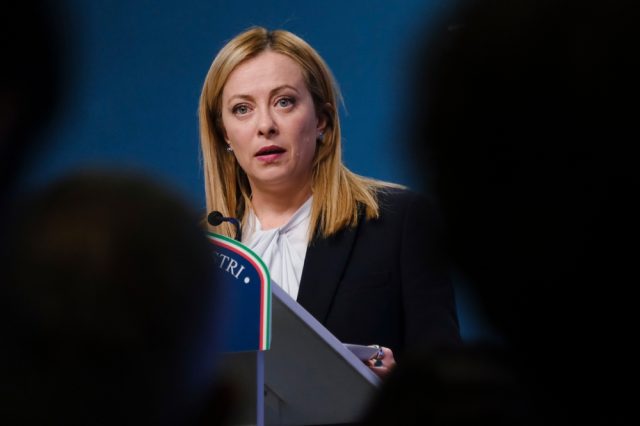
On the Washington-Brussels-Kiev-Moscow route, scenarios are changing fast. Moves and countermoves. Mutual accusations and sharp responses. Negotiations struggling to get off the ground because of catch-all clauses. Statements that do not smooth the distance. Rather, in a moment they overturn what seemed plausible until a week ago, such as the four-tiered plan to protect Ukraine, to be implemented in the event of a ceasefire.
Emmanuel Macron and Keir Starmer are convinced that the Kremlin is not interested in a real truce and is planning further attacks against sensitive Ukrainian targets. On the sidelines of the “summit of the willing” in Paris on Thursday, March 27, in addition to declaring that Europe will not lift sanctions on Russia until there is a peace proposal on the table, they stressed their concrete support for Kiev and announced that a Franco-British team would be ready to train the Ukrainian army of the future. The two leaders did not mention U.S. involvement for the time being, although, prior to the summit, they had had the opportunity to outline their intentions to Trump. When the Franco-British team should begin operations is still unclear. Some media outlets have reported that the foundation stone for the Macron-Starmer-led project could be laid in April, with the hope that a cease-fire will have been reached by then. Italy has demurred. The position remains and will always remain the same: no participation of Italian military forces on Ukrainian territory without the UN umbrella. PM Giorgia Meloni, on this point, was immovable even at the end of the Paris meeting. Other prime ministers of the so-called “coalition of the willing” also think so.
For more than three months, as pointed out by Defense Minister Guido Crosetto to national media outlets, the Italian government, in every forum, has been reiterating that the only possible and viable solution is that of a peacekeeping mission led by the Palace of Glass. Alternatively, Italian involvement would be through an international mission, not only European, but always under the legal cover of the United Nations. Even the condition for operating has not changed: a peace agreement must be signed. A ceasefire is not enough.
The four-tiered plan to protect Ukraine announced in recent weeks would at first involve forming a peacekeeping contingent, again under UN auspices, with South American and Asian blue helmets ready to deploy on the eastern border. Then, it would be up to the willing and to allies to protect the western territory separating Ukraine from the EU. After that, there would be the final two stages represented by support for the Ukrainian military, and logistical and technological support provided by the United States, respectively.
While the phase three scenario – the one that was supposed to involve the preparation of the Ukrainian military for a war-free scenario – has thus undergone a decisive acceleration, becoming urgent and primary for the Franco-British axis, on all other points there are still many knots to untie. In front of the microphones and cameras of the journalists present at the closing press conference of the latest Paris summit, Macron also brought up Xi Jinping. The French president’s hope is that the Chinese leader will play an active role in fostering peace in Ukraine as soon as possible. Given the dialogues between Beijing and Moscow, and given its past initiatives and its role as a permanent member of the UN Security Council, China, according to Macron’s thinking, should be interested in playing such a game. There is just one detail, a not insignificant detail. Beijing’s ambassador to the UNSC, as recalled by Minister Crosetto, would basically support the Italian line. He would share what the Meloni government considers indispensable: mission under UN auspices, only after the signing of peace.
The other point on which Meloni does not compromise is the involvement of the United States in the upcoming engagements of the “coalition of the willing”. Although Trump is briefed by Macron on an almost daily basis, the Italian PM hopes that a delegation from Washington will be able to attend future meetings. On this point, too, Italy has received support from other European states. Giorgia Meloni, thanks to her diplomatic skills, is recognized as the hinge, the bridge between the two sides of the Atlantic. Even more so at this stage when relations between the White House and Brussels are not exactly idyllic because of the tariff issue. Also advocating the Italian line is the former President of the European Council and current Prime Minister of the Republic of Poland, Donald Tusk.



 Subscribe
Subscribe